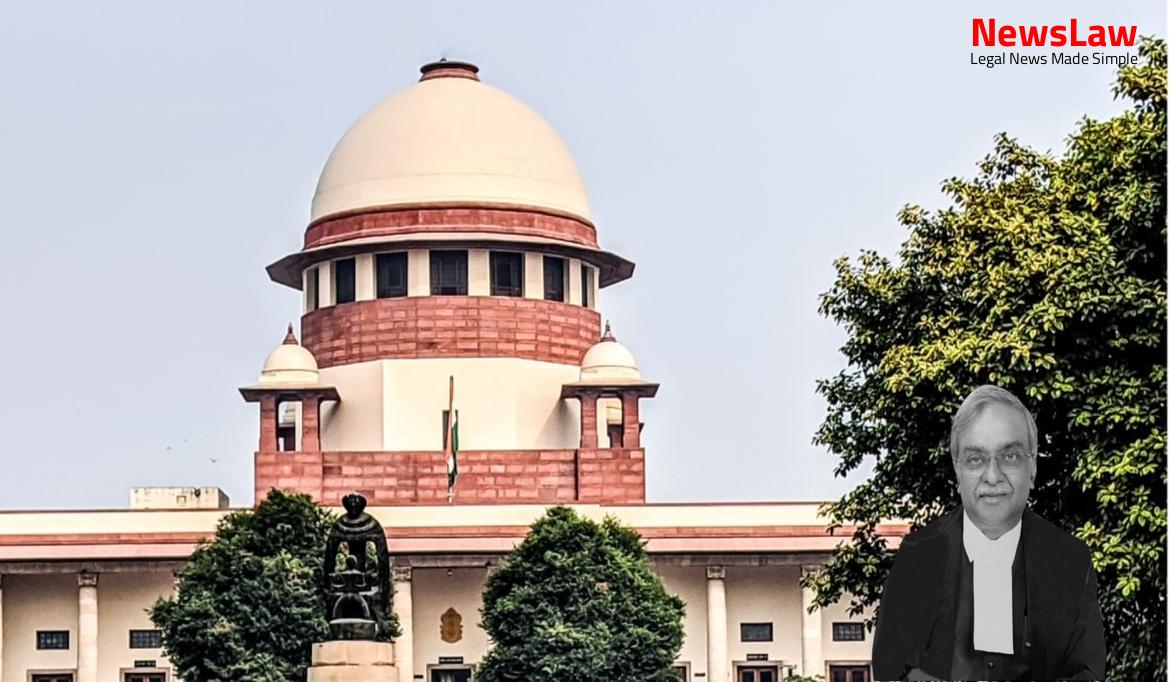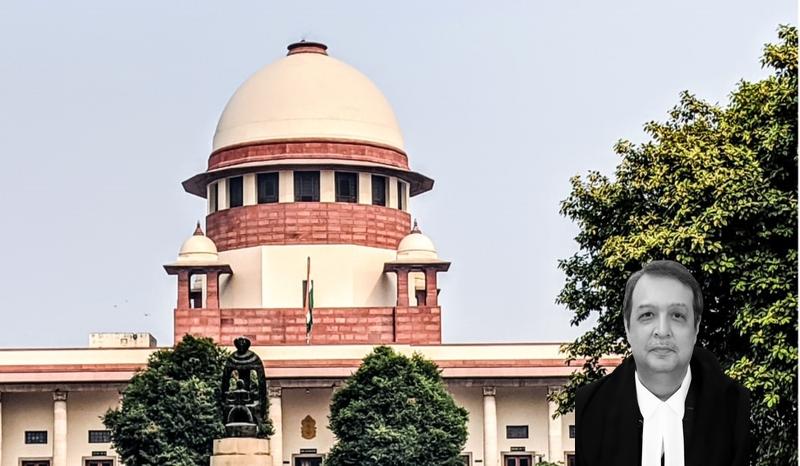In a significant legal battle over a land dispute case, the Supreme Court of India has issued a ruling on specific performance and compensation. The case involves a dispute between the plaintiffs and defendants in the matter of an agreement to sell a property. Stay tuned to learn more about the details of this judgment and its impact on the parties involved.
Facts
- The agreement to sell mentioned that possession of the site would be given that very day.
- The stipulated period for completion of the transaction was three months, subject to the Government lifting restrictions on registration.
- Defendant No. 1 extended the period by a week, but when plaintiffs did not act, he indicated selling the property to someone else.
- Plaintiffs claimed to have paid a total advance amount of Rs.14,000/-, but defendant disputed the additional Rs.2,000/- payment.
- Defendants sold portions of the property to other parties after the agreement was made.
- Plaintiffs sought specific performance and permanent injunction after defendants failed to execute the sale deed.
- Plaintiffs contended they were ready and willing to perform their part of the contract, while defendants alleged delays on plaintiffs’ part.
- Trial Court decreed the suit for specific performance, directing defendants to execute the sale deed within three months.
- High Court dismissed the appeal against the Trial Court’s decision.
- Defendants claimed forfeiture of earnest money due to plaintiffs’ failure to pay the balance price.
- Defendants argued that the agreement was no longer enforceable due to various reasons.
- Plaintiffs tried to settle the matter amicably but were unsuccessful.
- Defendant no.7 lost the opportunity to contest.
- High Court confirmed the judgment of the Trial Court without any infirmity.
- Defendants 6 to 7 failed to prove they were bona fide purchasers for value without notice.
- Contract was not against public policy or Section 23 of The Indian Contract Act, 1872.
- Time was not considered the essence of the contract.
- Agreement to sell was executed by all defendants 1 to 5.
Also Read: Interpretation of Drawer Liability: Company vs. Authorized Signatory
Issue
- Plaintiffs need to prove the due execution of the agreement of sale dated 24.05.1981 by defendants 1 to 5.
- Examination of whether defendant no.6 is a bona fide purchaser without notice of the earlier agreement of sale dated 24.05.1981.
- Consideration on whether defendant no.7 (Respondent no.9) should be allowed to file a written statement and if the matter needs to be remanded back to the trial court.
- Determining if time is considered the essence of the contract.
- Evaluation of the legality of the judgment and decree of the trial court decreeing the suit for specific performance.
- Analysis of whether the agreement of sale dated 24.05.1981 violates any provisions of the Contract Act, 1872.
Also Read: City Manager Selection Dispute: Upholding Rules 2014 Over Executive Order
Arguments
- Shri Verma, counsel for the appellants presented case law to support his arguments.
- Concurrent findings of fact were found by both lower Courts on the appeal.
- No substantial errors were identified in the High Court judgment that would require intervention under Article 136.
- Appellant No.2 did not have the right to contest the impugned judgment as no written statement or evidence was submitted before the Trial Court.
- Arguments presented by both parties were considered after reviewing the material on record.
Also Read: Landmark Judgment by Supreme Court on Divorce and Maintenance Dispute
Analysis
- Suit for specific performance based on vague and bald pleadings must be rejected.
- Relief of specific performance is a discretionary relief.
- Plaintiffs did not seek declaration of sale deeds as null and void.
- Courts failed to consider evidence of ban and readiness/willingness to perform.
- Plaintiffs’ conduct suggests they were not genuine buyers but middlemen.
- Plaintiffs did not communicate or show readiness and willingness before filing suit.
- Decree of specific performance not warranted, suit should have been dismissed.
- Plaintiffs need to be compensated for the advance payment made.
- Plaintiffs failed to plead details of the State restriction on sale deeds.
- Plaintiffs did not provide proof of having funds to pay balance consideration.
- Courts need to be cautious in granting specific performance based on mandatory requirements.
- Defendant No.1 made multiple communications for payment, plaintiffs remained silent after December 1981.
- Readiness to perform the contract is different from willingness to perform the contract.
- Readiness may refer to the plaintiff’s capacity to perform the contract, including their financial position to pay the purchase price.
- Failure to aver and prove readiness and willingness to perform essential terms of the contract can bar a claim for specific performance.
- Plaintiff must always be ready and willing to perform the contract to claim specific performance.
- Plaintiff’s readiness and willingness must be proven with evidence.
- Plaintiff’s readiness and willingness are crucial factors in determining specific performance.
- About 43 years have passed since the date of the agreement to sell.
- The respondents have not given any figure of the approximate value of the property in question.
- The appellant claims, as stated in the written brief, that the value of the property is about four crores.
Decision
- The appeal is allowed, and the impugned order is set aside.
- The appellant is directed to pay a total amount of Rs.30 lakhs within three months.
- Proof of payment must be filed before the Court within the next four months.
- If proof of payment is not filed, the matter will be listed for further orders.
- The appellant is to compensate the plaintiffs by paying Rs.24 lakhs as advance and Rs.6 lakhs as the cost of litigation.
- The suit is dismissed with the above direction regarding payment of Rs.30 lakhs to the plaintiffs within the stipulated time.
Case Title: P. RAVINDRANATH Vs. SASIKALA (2024 INSC 533)
Case Number: C.A. No.-007792-007792 – 2024



